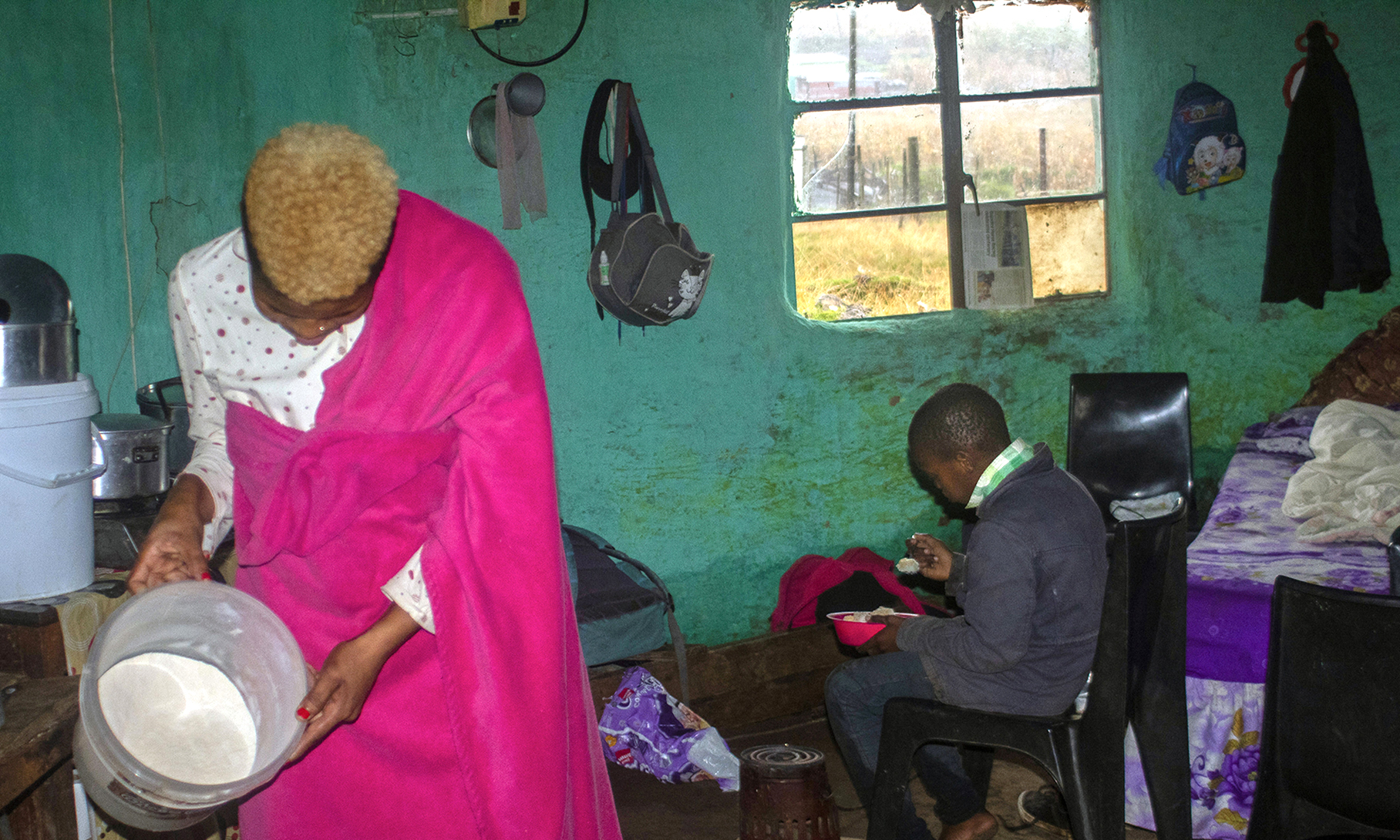African countries have raised two main concerns about the concept of ‘just transition’ in the climate change debate and negotiations.
First, most African countries want to build a broader framework to respond to climate change beyond the “just energy transition” or focus on mitigation alone. They want the concept of the ‘just transition’ to also include their needs for adaptation and resilience. African countries also call for the concept of the just transition to be complemented by the concept of ‘climate resilient development’.
Second, there is a concern that the concept of the ‘just transition’ may be abused by some interest groups to limit the transition to market-based solutions that lack inclusivity.
As a result, there are alternative approaches that call for an active role for the state, one that advances sustainable industrialisation and green manufacturing. Both these issues are discussed further below.
The concept of a ‘just transition’ and climate-resilient development
The concept of a just transition has gained significant traction and almost all major groups at the Conference of the Parties (COP) Ministerial Conferences — governments, the private sector and civil society — use the concept liberally in their discourse.
At the Glasgow COP in 2021, the concept of a just energy transition (JET) was used to provide support to the transition from fossil-fuel energy systems in South Africa. This financing model referred to as Just Energy Transition partnership (JET-P) gained traction and has since been extended to Indonesia, Vietnam and Senegal.
The concept of the ‘just transition’ first emerged in discussions within the trade unions in the United States on the energy transition and has been discussed by climate activists in the South.
However, the challenges being discussed in the South go well beyond the ‘energy transition’ and must include development challenges that include adaptation and resilience.
In addition, the just transition in the South must also address multiple systemic and structural challenges and inequities in developing countries that stem from their particular insertion into the global economy. These challenges include the impact of global or multilateral governance regimes that are unfair and imbalanced against developing countries.
To advance sustainable development, the 5th International Panel on Climate Change (IPCC) report argued that transformational processes are required in developing countries. The report referred to these processes as ‘climate resilient development’. It is for these reasons that the concept of ‘climate resilient development’ is helpful and should be utilised as a complimentary framework to understand the transition underway in developing countries as a consequence of climate change.
The concept of a ‘just transition’ and market-based approaches to climate change
The ‘just transition’ concept however means different things to different interest groups and actors in the COP negotiating processes in the UN Framework Convention on Climate Change (UNFCCC).
Activists and reformers in the United States and Europe — those that have backed a Green New Deal — see this as an opportunity to redistribute wealth-generating assets using the state in the form of green industrial strategy. However, there are, on the other hand, major private finance and asset managers, who have no such intention and see the main function of the state as that of using its balance sheet to insure private investors against losses or what some writers refer to as ‘de-risking’.
Conventional or mainstream approaches to climate policy are often based on neoclassical economic theory that regards climate change as a market failure related to a negative externality in the form of greenhouse gas (GHG) emissions. This perspective views climate policy as being mainly about how to fix markets through adjustments in relative prices.
Market-based mechanisms (such as carbon taxes, carbon permits and tradable rights, feed-in-tariffs) aim to increase the cost of products that rely on carbon-intensive production processes. They are intended to stimulate innovation in lower carbon alternatives. For example, carbon credits provide an incentive to cut emissions, because firms can sell the remaining permits that they do not use.
This narrow market-based approach is reflected in the views of finance companies and asset managers on how to address the huge climate financing gap in developing countries as they try to respond to the challenges of climate change. The major Wall Street private sector groups that participated in COP-27 in 2022 believe that “decarbonisation was fundamentally a challenge of crowding private credit into green activities, by blending public and private finance”.
 A just transition must also improve the lives of the poorest people by transforming developing country economies, adding value to their commodities and increasing decent jobs. (Photo: Hoseya Jubase).
A just transition must also improve the lives of the poorest people by transforming developing country economies, adding value to their commodities and increasing decent jobs. (Photo: Hoseya Jubase).
Following this approach, for some OECD governments there is simply a need to “derisk the investment and create the capacity to have bankable deals”.
The view of the major US corporations is that the state should act as the “insurer of first resort”. This would mean that “current asset holders can take the upside of the investment risk of the transition while the state acts as insurance against losses on current assets and future bets”.
However, the concept of de-risking does not have to be totally dismissed if de-risking partnerships can be reimagined to give the state space for disciplining rather than simply subsidising private finance.
Alternatives to narrow market-based approaches to climate change
Many academic writers argue that for a climate-resilient development pathway to succeed it will need to ensure that at least three essential policy orientations are aligned with policymakers across the government and society engaging in the policy process in an inclusive and transparent manner.
These include:
- A Green Developmental State;
- Sustainable Industrialisation and
- Alignment of Monetary and Fiscal policy.
Below we briefly outline these key elements and propose approaches that will be most consistent with a just transition and climate-resilient development pathways.
Role of the State
An alternative to the market-based approaches of the neo-liberal perspective is that of a strong and intelligent developmental state.
This vision of the role of the state in economic development has been largely argued by a range of development economists or heterodox economists such as Wade, Mazzucato, and Chang.
Interestingly, the current EU Green Deal and the US Green New Deal both see decarbonisation as a project of actively building up a low-carbon economy, with the state playing a leading role through public investment and leveraging private spending. This view is that of an investment-driven approach to climate change mitigation, adaptation and resilience.
Sustainable industrialisation
The UNFCCC has called for net zero greenhouse gas (GHG) emission targets by 2050.
Some sectors, such as the EU automobile industries, have set a 2035 target to stop imports of internal combustion (ICE) engines. Meeting these targets will require massive transformation of industrial production in the North and in the South. This will require new pathways of sustainable industrialisation.
These pathways will need to favour and direct new “green entrants” while at the same time manage the exit of “brown firms” from specific industries or technology paradigms. This will require more than mere carbon pricing policies of the EU or expansionary policies favoured by the US, as markets have failed to internalise environmental costs at the scale and speed required.
A more strategic policy approach is required that recognises the need to manage differences across sectors and places and their needs and capabilities.
Monetary and fiscal policy
The concept of a just energy transition as applied in South Africa has been criticised by some writers who call for greater coordination between the energy transition and monetary and fiscal policy.
For example, these writers argue that if the government adopted policies of “macroeconomic tightening,… this could lead to inferior outcomes, putting sustainable development out of reach”.
Thus these heterodox economists argue that what is required is more than the current approach of most central banks in the OECD countries, which prioritises price stability (through inflation targeting) and directs financial resources (credit guidance) towards private finance. Instead, they argue that more explicit credit allocation policies coordinated with fiscal and industrial policies are needed to steer the structural transformation of the economy.
Transforming developing economies
Thus, for African countries, the concept of a ‘just transition’ must be understood, not only as a transition from one energy system (based on fossil fuel) to another (based on renewables) but as part of a much larger transformation that includes adaptation and resilience.
A just transition must also improve the lives of the poorest people by transforming developing country economies, adding value to their commodities and increasing decent jobs. Market-based approaches are insufficient to achieve this and thus an active role of the state is required to advance sustainable industrialisation and green manufacturing and also align fiscal and monetary policy to achieve the structural transformation of African economies. DM
Faizel Ismail is the Director of the Nelson Mandela School of Public Governance at the University of Cape Town and the author of three books on the World Trade Organization.
This is the second article in a series on climate change and development in Africa presented by the Nelson Mandela School of Public Governance at UCT. In the context of COP-28, taking place in the United Arab Emirates, it aims to assist readers in understanding the nuances of the debate on how to respond to the systemic impacts of climate change.
The first article can be read here: A much larger transformation in Africa — why a just transition must be complemented by climate-resilient development




 A just transition must also improve the lives of the poorest people by transforming developing country economies, adding value to their commodities and increasing decent jobs. (Photo: Hoseya Jubase).
A just transition must also improve the lives of the poorest people by transforming developing country economies, adding value to their commodities and increasing decent jobs. (Photo: Hoseya Jubase). 